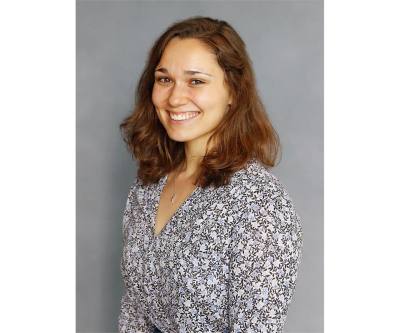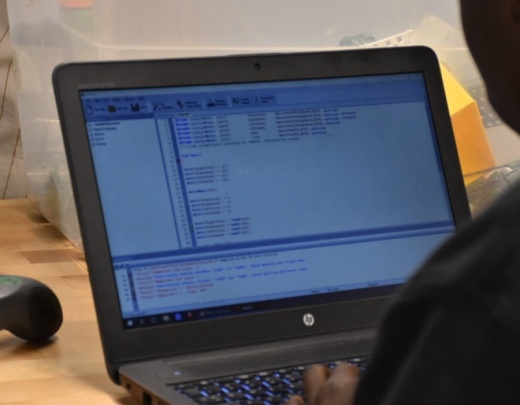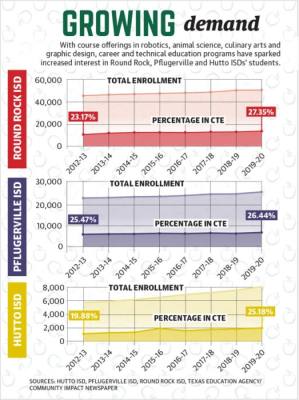The transition to virtual learning following spring break was particularly challenging for experience-based classes, such as the automotive technology course, said Robert Sormani, HISD’s associate superintendent of instruction and innovation.
“We joke that it took some baling wire and duct tape to put something together as quickly as possible,” Sormani said. “But I think we did an amazing job, and now look what we're going to be able to do now that we know this is a possibility.”
HISD’s automotive technology class is an example of a career and technical education course. CTE classes offer technical knowledge and skills that students can use to further their education or prepare for entry into the workforce, Sormani said.
During the 2019-20 academic year, more than one in four HISD students were enrolled in the district’s CTE program, according to Texas Education Agency data. Furthermore: nine out of 10 Hutto High School students were registered in at least one CTE course—with options including robotics; business marketing and finance; criminal justice; animal science; engineering; and culinary arts—said Travis Clark, HISD’s CTE coordinator.
“We really have something for all of our kids that they’re interested in,” Clark said. “Research has shown kids show up to school more often and graduate more whenever they’re enrolled in CTE programs.”
A 2016 study by the Thomas B. Fordham Institute—a nonprofit education policy research center—found that students enrolled in CTE were 21% more likely to graduate high school than students not enrolled.
While the 2020-21 school year began 100% virtually, Sormani and Clark said some CTE courses would continue online, while others are expected to resume in-person.
All CTE courses will operate under the same safety provisions implemented in general education courses, Sormani said. The benefit of CTE classes, he added, is the smaller class sizes and versatile classroom space. Courses such as agricultural science or automotive technology are hosted outdoors or in larger, open air classrooms, better lending to safety accommodations.
Sormani said he is proud of the innovation applied by both HISD students and staff as they navigate these uncertain times. HISD has bolstered partnerships with Texas State Technical College to develop online culinary arts classes, and with Temple College to open its campus to a small group of students for emergency medical technician training this semester.
CTE programs are strong foundations for students interested in pursuing a career in a more technical field, Sormani said. However, just as importantly, Sormani said they offer students the chance to be a part of something bigger than themselves—a factor that remains at the core of the fall’s virtual and in-person learning opportunities.
“It provides a positive identity and role,” Sormani said. “And that student may actually go off to college and do something else. But for that time period, they have a group that they belong to and a positive self-image.”






